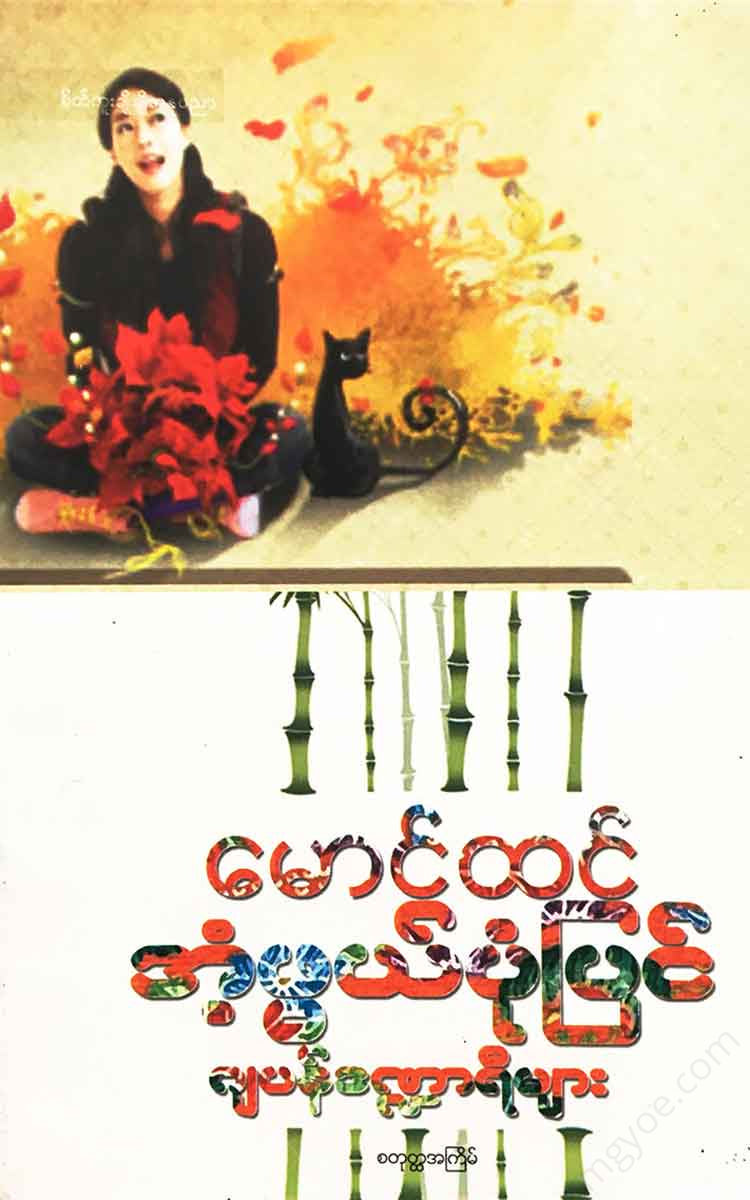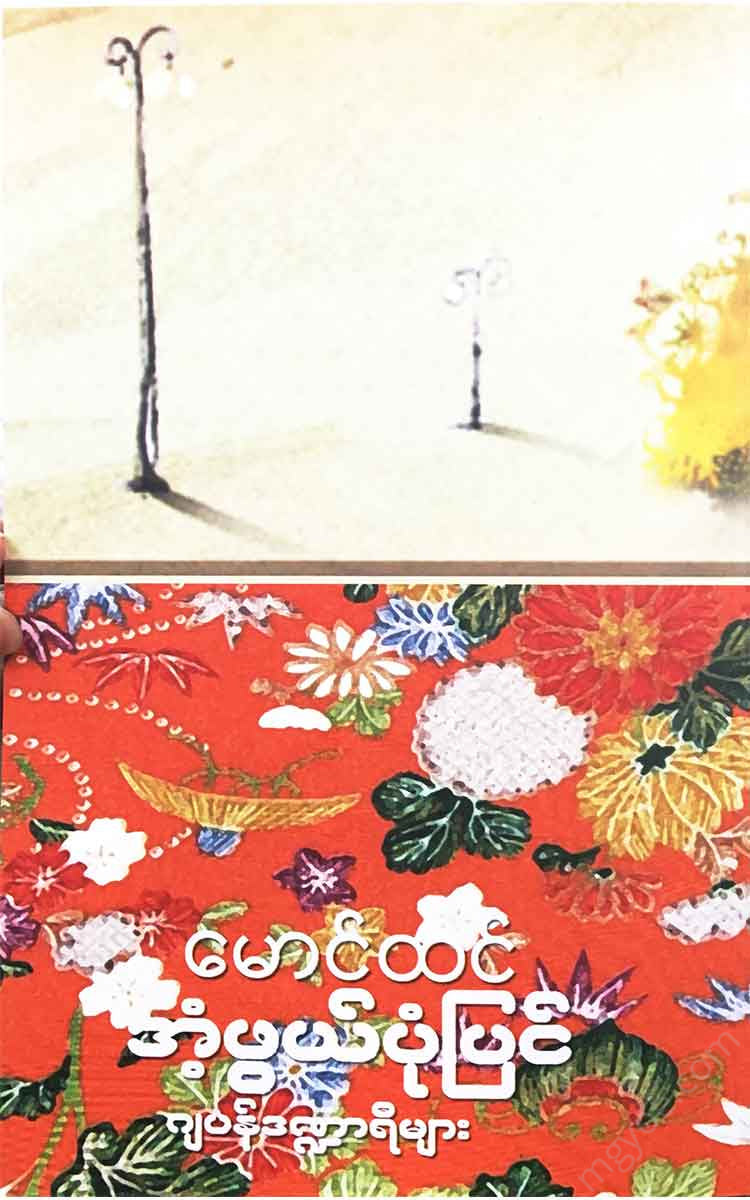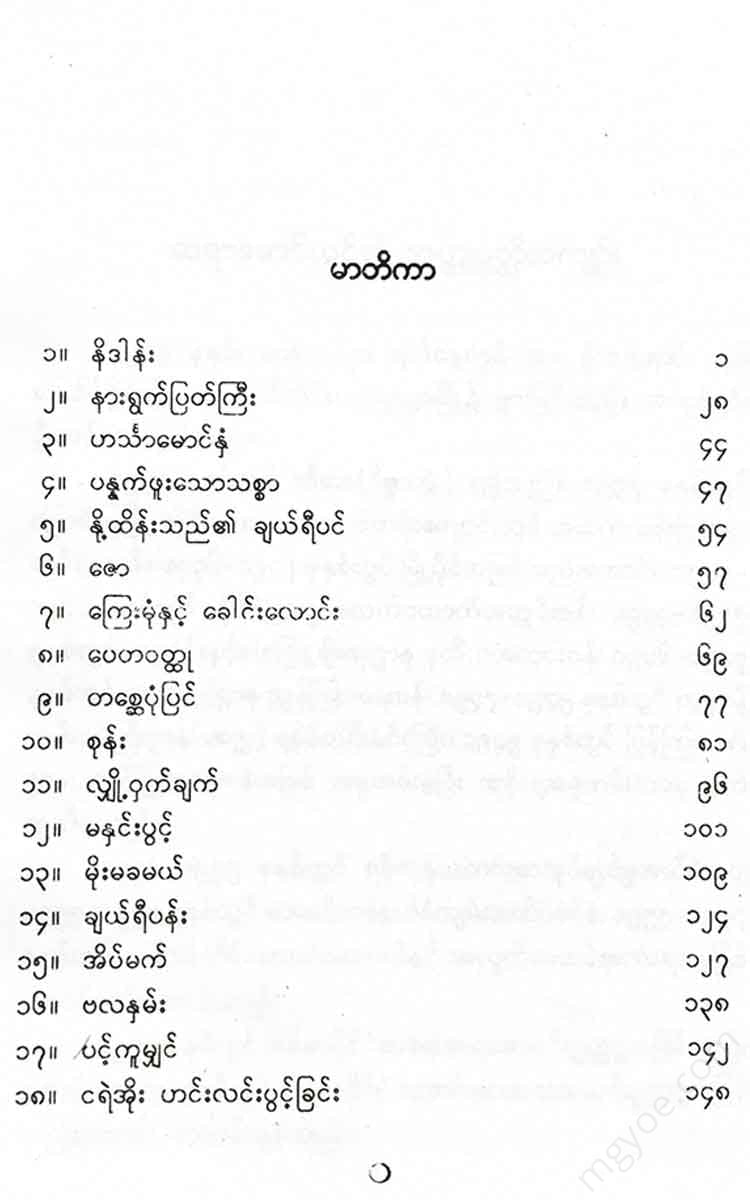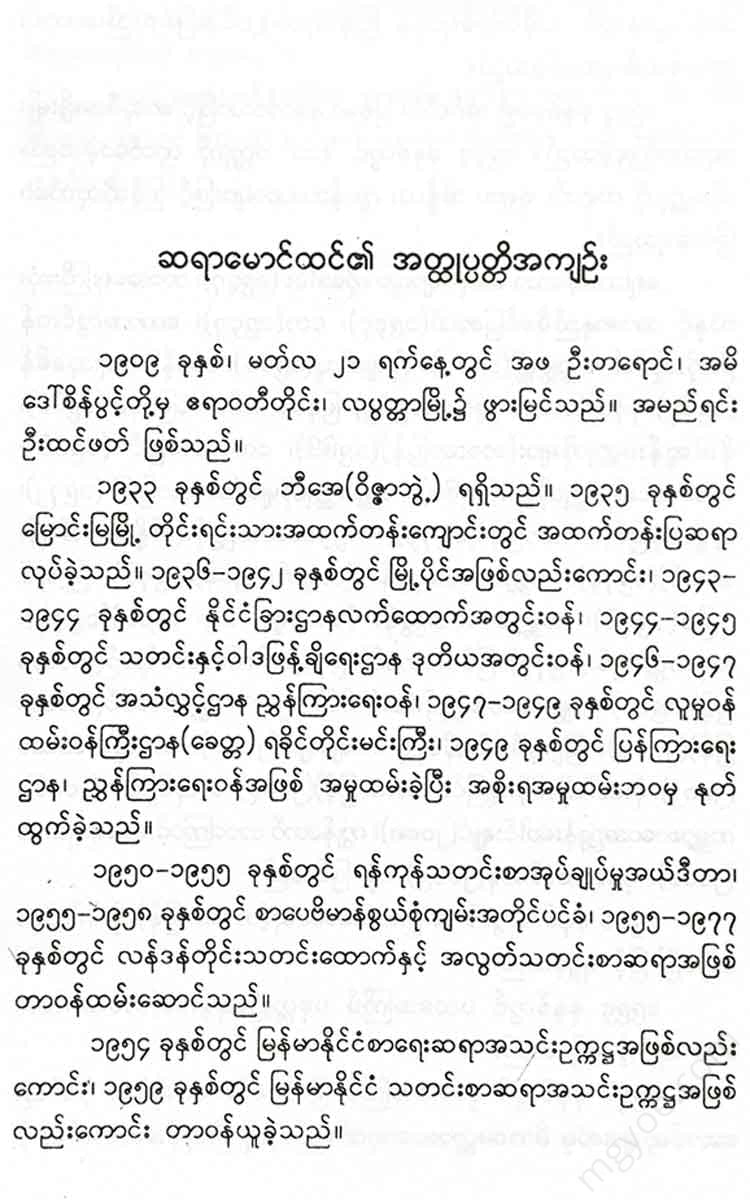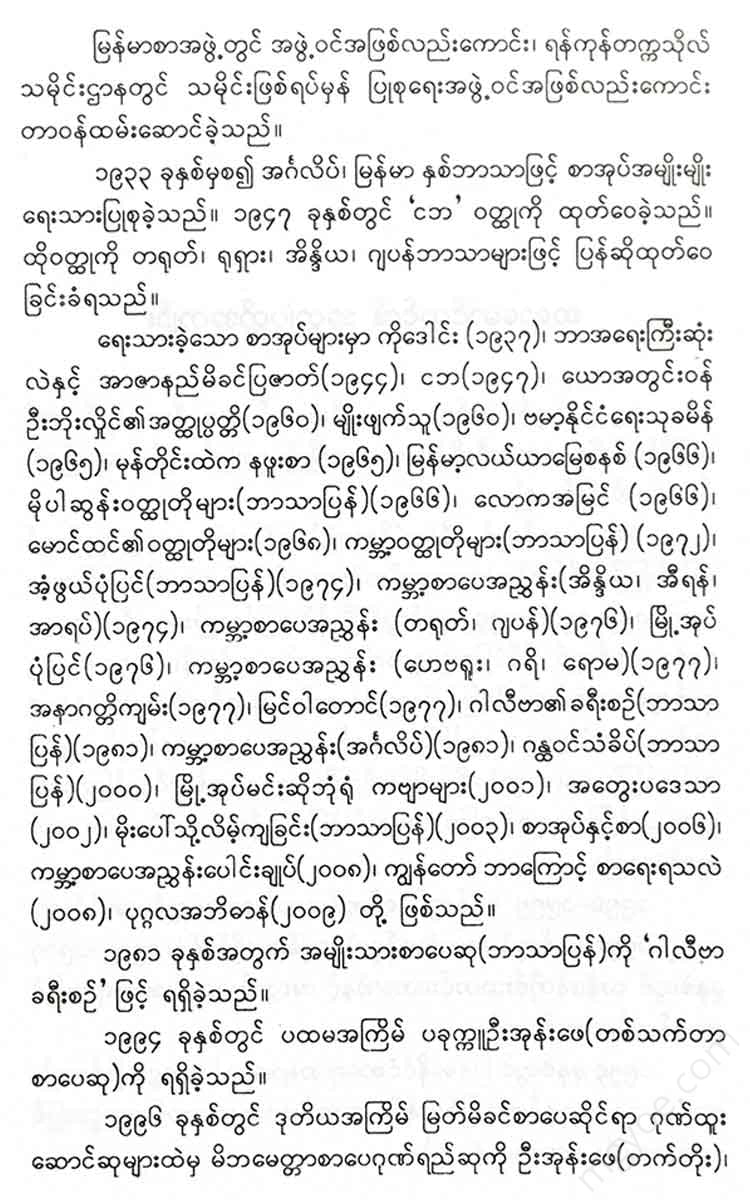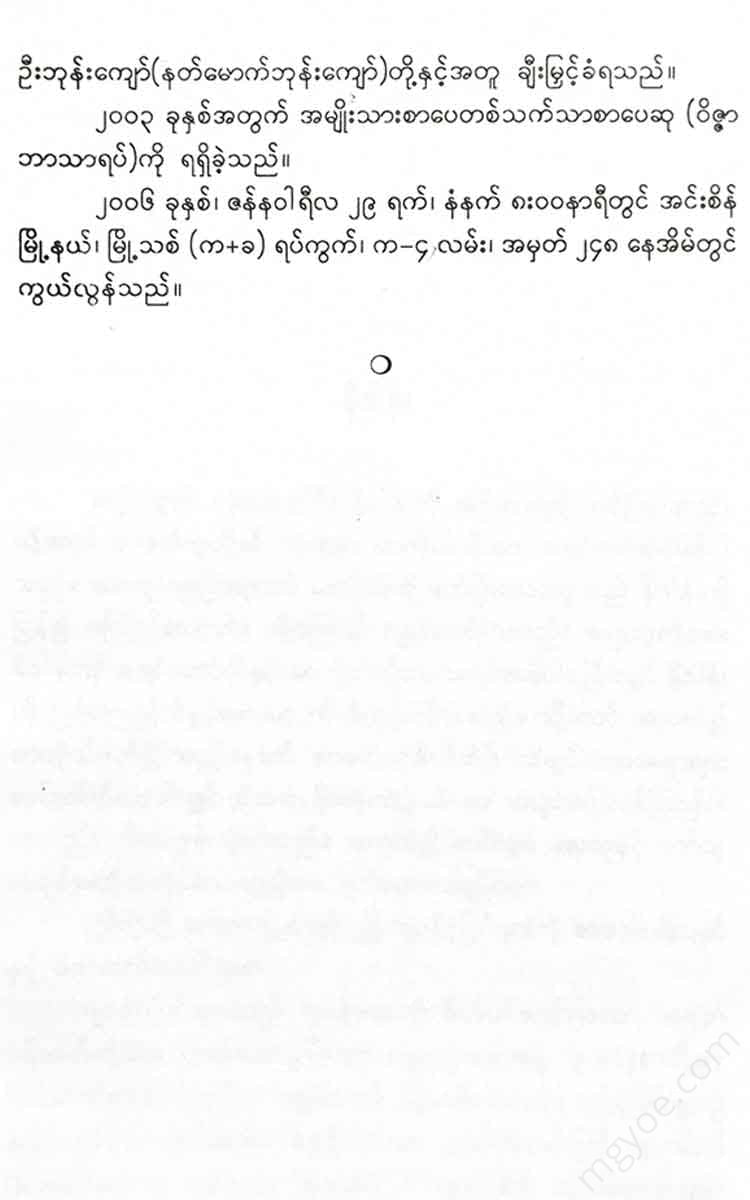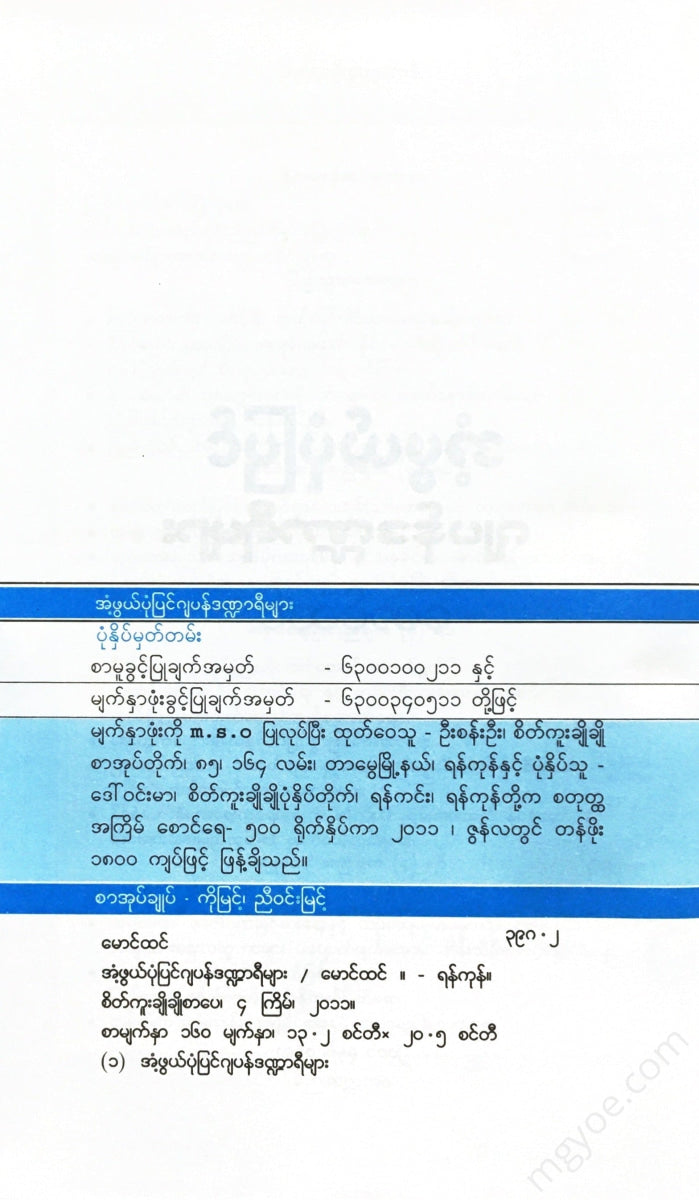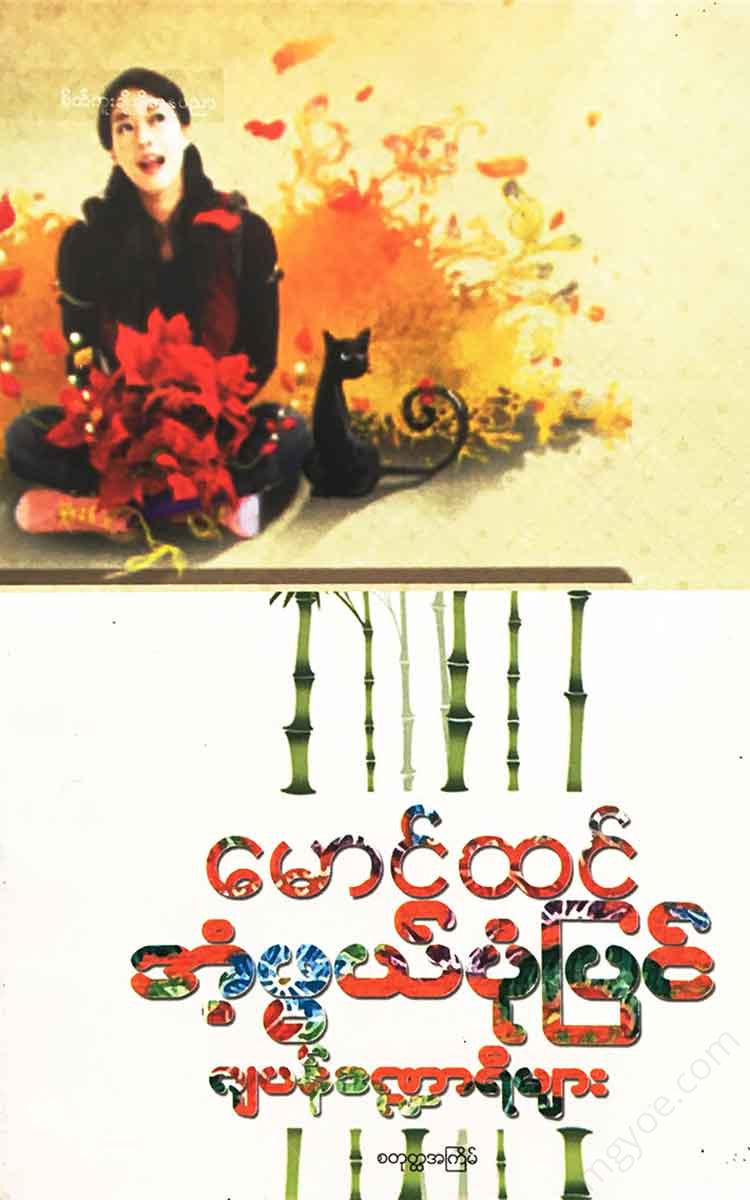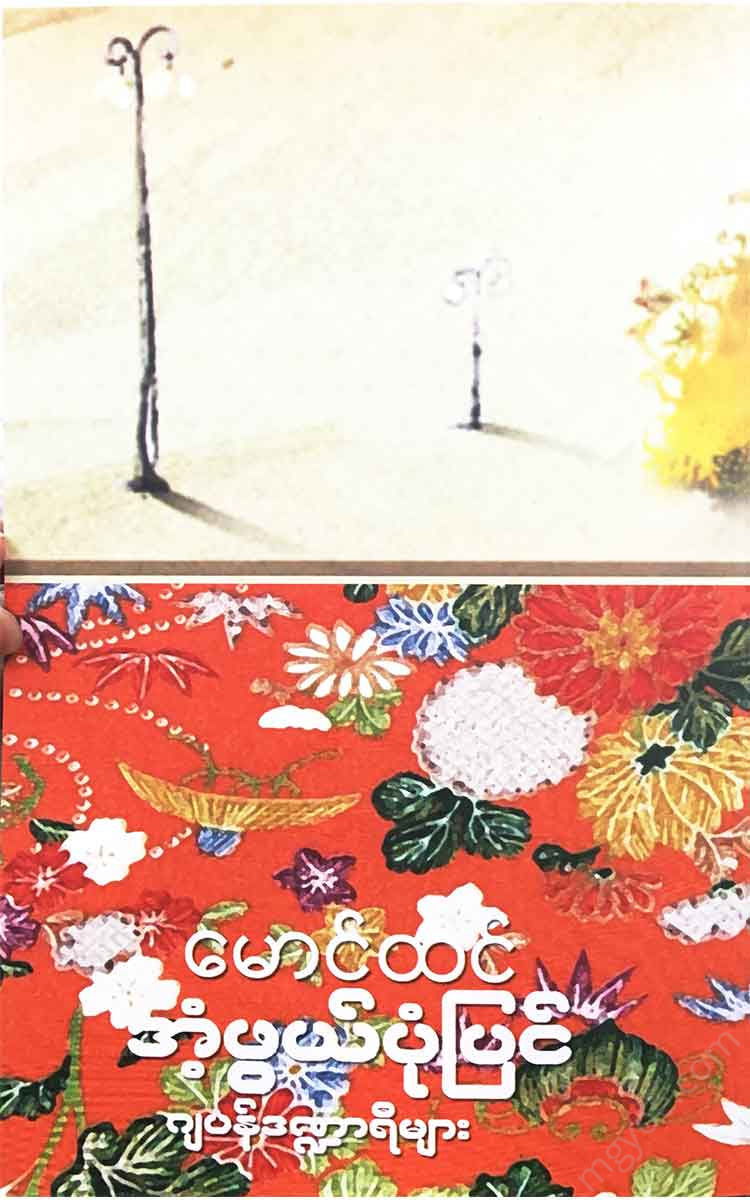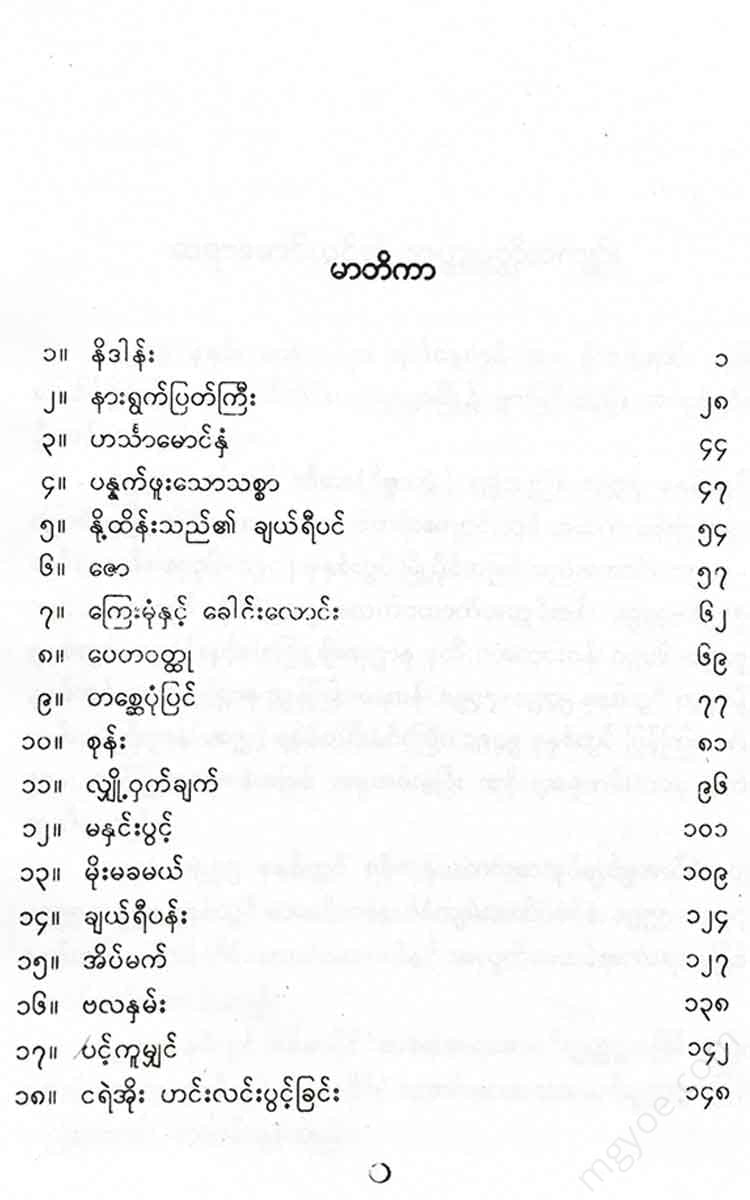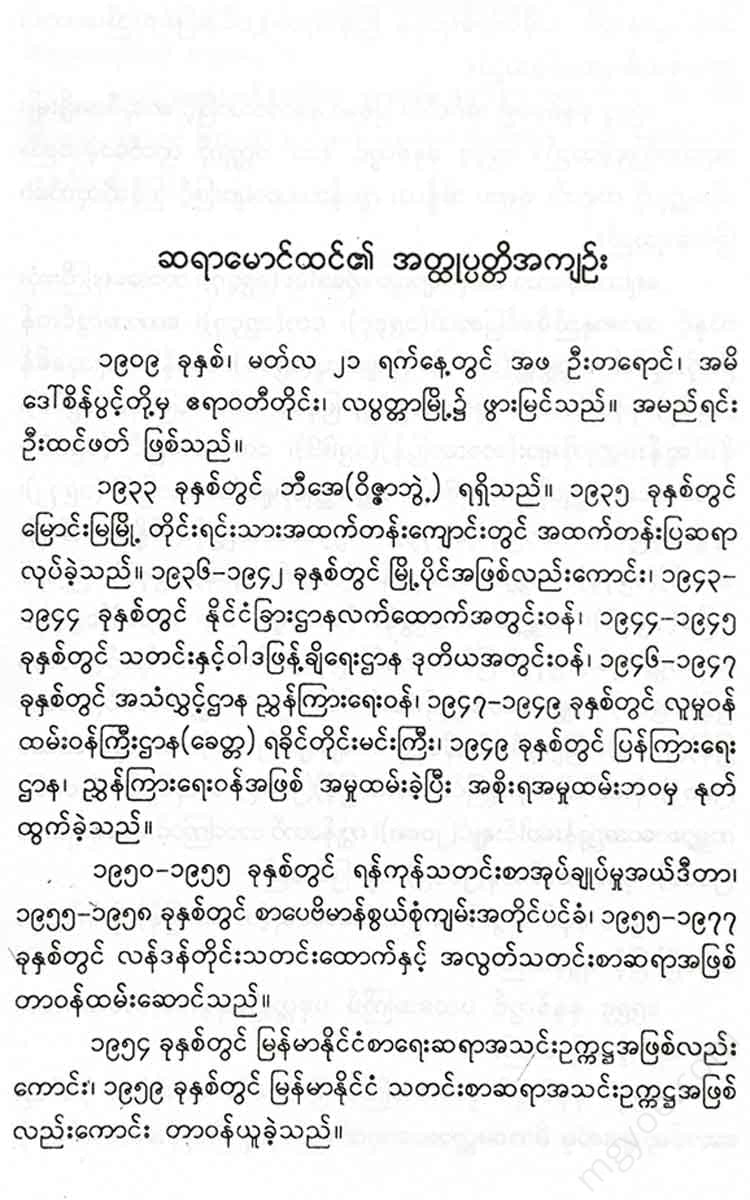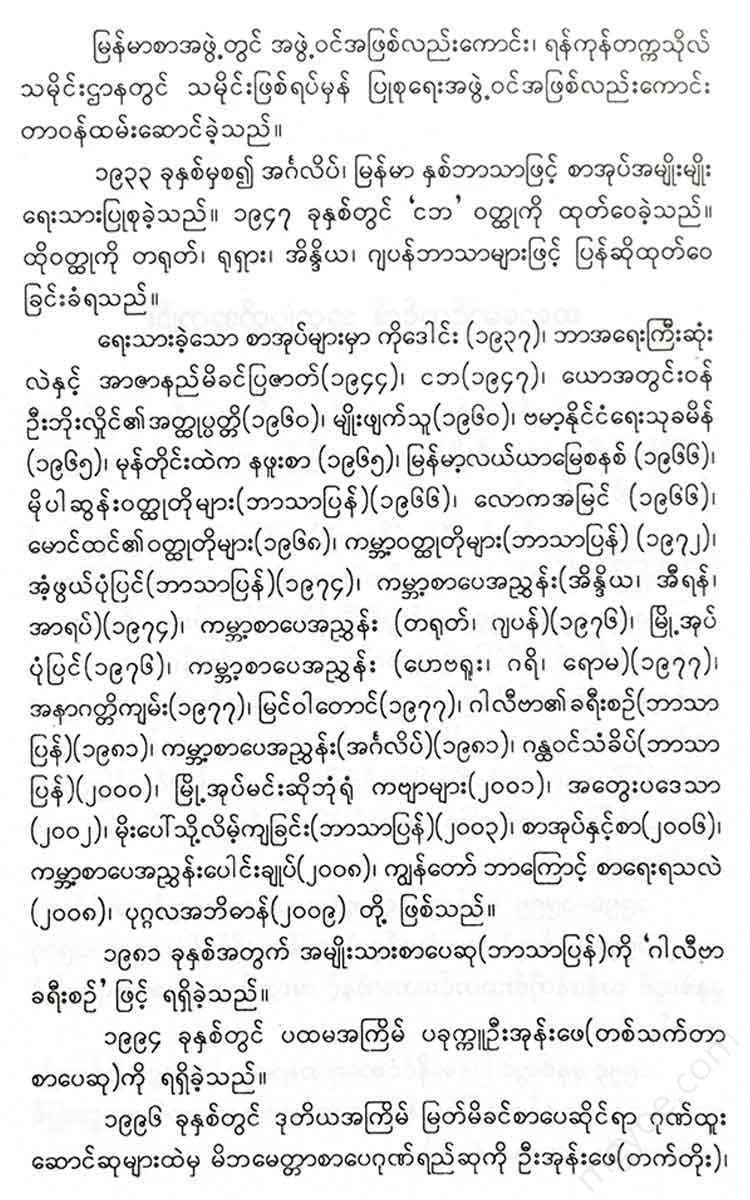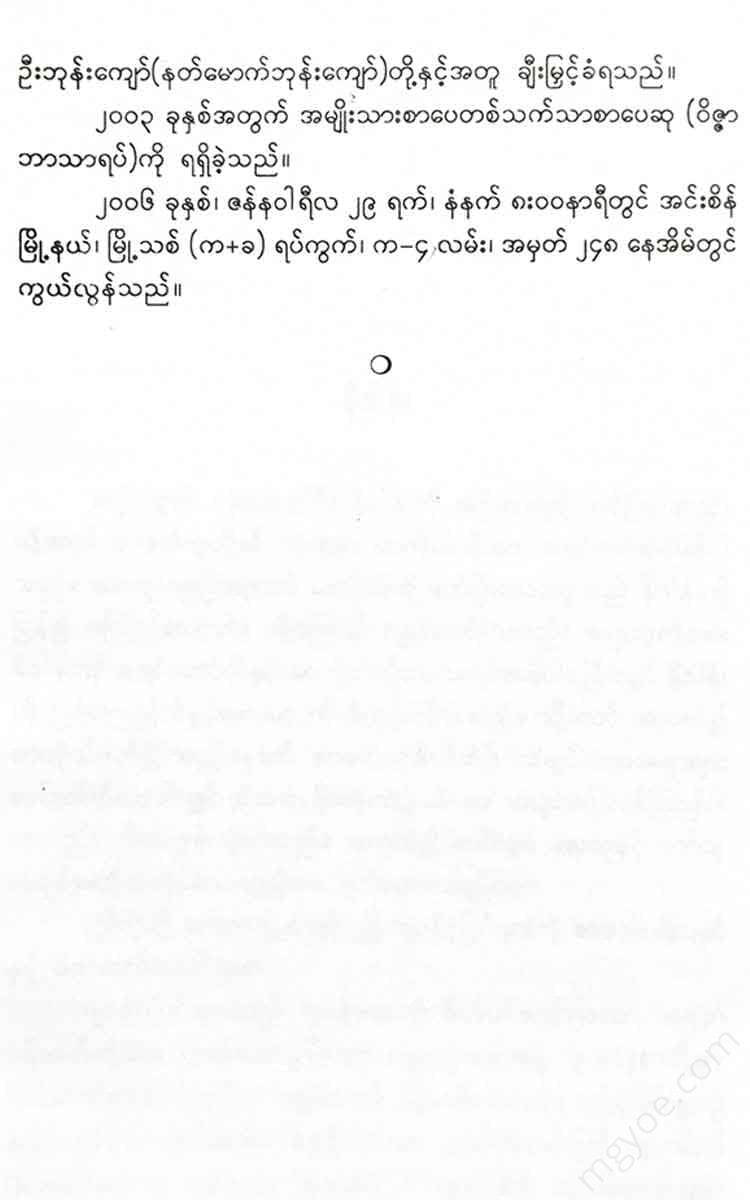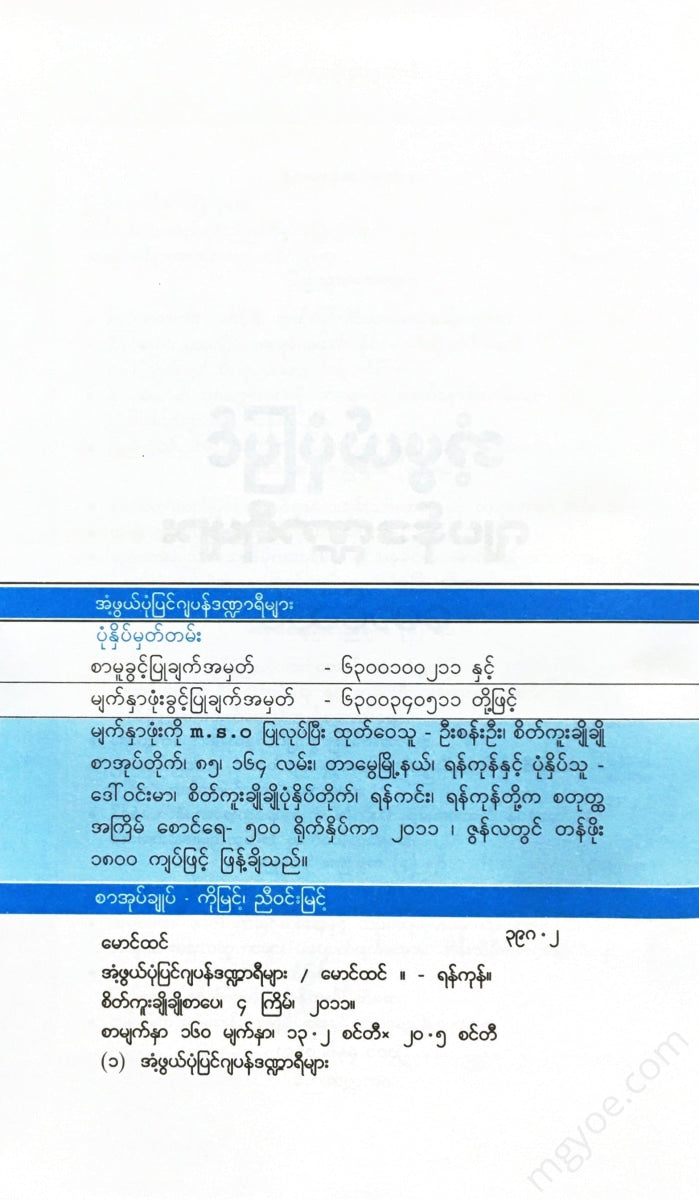စိတ်ကူးချိုချိုစာပေ
Maung Htin - Wonderful Stories and Japanese Legends
Maung Htin - Wonderful Stories and Japanese Legends
Couldn't load pickup availability
Big ear
Seven hundred years ago, in the city of Dannoura in the Shimonoseki Strait, a long-standing war between the Taira clan of the Taira clan and the Ginji clan of the Minamoto clan took place, and one final battle took place. In that war, the Heike wiped out the entire clan, killing not only the women and children, but also the infant king, known in Japanese history as the "Anto-Kedo". As a result, the Shimonoseki Sea and its shores have been haunted by ghosts for seven hundred years.
There is a type of crab on that beach. The crabs have spots on their backs that look like human faces. Therefore, it is believed that the Heike soldiers ate these crabs.
Not only that, but they saw and heard strange things along the seashore. They heard and heard. On dark nights, they saw ghosts shining along the seashore and in the waves at sea. When the wind was strong, they heard a roaring sound from the sea, like the sound of a battle.
In ancient times, it is said that the ghosts of Heike were more violent than now. They appeared around ships traveling at night and caused them to sink. They were also said to drag people swimming in the sea and drown them. In order to free such people from their sinful lives, a Buddhist temple called Amidaji was built in the city of Akamagasaki, Bekan, and Shimonoseki. On the banks near the temple, tombs were built as a memorial to the deceased king and his chief, the Senapat. In order to help the deceased enter the afterlife, Buddhists regularly perform meritorious deeds such as chanting prayers and sending blessings. After the temples were built and the tombs were set up, the apostates no longer caused trouble to the people. However, sometimes they would do very strange things, and it was thought that the Hei Ke people were not yet free from them.
xxx
A few hundred years ago, a blind man named Hoichi lived in Akamagasaki. He was a famous Japanese harpist who played the biwa and sang the sacred songs. The sacred songs were about the tragic and tragic events of the Heike people. He was especially famous for reciting the epics of the Heike and the Genji people. It is said that when the sacred songs were sung about the Battle of Dannoura, even the Heike deities wept with longing.
First of all, Hoichi was very poor. However, he had a friend who would help him. The priest of the Amidaji monastery was very fond of poetry and music. Therefore, he often invited Hoichi to his monastery and asked him to play and sing. Hoichi was so impressed with his musical talent that the monk himself offered Hoichi the opportunity to live permanently in the monastery. Hoichi accepted this invitation with gratitude. He rented a room. In return for his lodgings, he played music for the monk in his free evenings.
One summer night, the monk went to pay his respects to a villager who had died. On this trip, Hoichi was left alone to guard the monastery, and he went with only one elder. That night was very cold. So the blind Hoichi went out onto the veranda in front of his bedroom to catch some fresh air. From the veranda he could see a small garden behind the monastery. There, Hoichi, left alone, took out his harp and tried to play it to relieve his boredom. Midnight came, but the monk did not return. However, the heat in the bedroom was so intense that Hoichi continued to stay outside. After a while, he heard footsteps coming from the back door. The blind man realized that someone had come across the garden and was standing right in front of him on the veranda. However, he knew very well that the person standing next to him was not a high priest. In a deep, low voice, like the voice of a samurai commander giving orders to his subordinate, the person who came in called out sternly, "Hoichi."
Hoichi was so surprised that he didn't respond. Then the announcer called out again, "Hoichi," in a stern, authoritative voice.
Hoichi became a little annoyed at the sound of the scolding and replied, "Yes."
"I'm blind, so I can't tell who's calling what."
"He said, 'I'm sorry.'" Then the announcer calmly replied.
"There is nothing to fear. I am staying near this temple. I have a message for you. My lord is currently staying in Akamagasaki with many palaces. He is of great rank. He wanted to see the Battle of Dannoura and went to the place where it was held. But I have heard about that battle that you are good at throwing magic arrows. So take your harp and come with me at once. Your audience is waiting for you there."
In those days, it was not uncommon to be dispossessed of the authority of samurai warriors, so Hoichi put on his Japanese sandals and took up his harp, following the stranger he knew. The man showed Hoichi the way with skill and agility. But he did not let him follow him too closely. The hand that guided him was an iron hand, and the metal armor that creaked with every step he took showed that he was fully dressed in military uniform. He must have been a member of the palace guard. Hoichi thought to himself that his initial fear had passed and that he had become somewhat braver, so he was very lucky.
Because the courtier said that he was “very high-ranking,” he thought that the one who wanted to hear his divine voice would be a nobleman no lower than the first class. Before long, the soldier stopped and Hoichi noticed that he had arrived at a large gate. Hoichi thought it was strange that he had not noticed that there was another gate in this part of the city besides the Amidaji Gate. The soldier ordered, “Open the gate,” but after hearing the doorknob open, he and Hoichi entered through the gate. Then they had to walk through a garden. They stopped again in front of a gate. Then the soldier shouted loudly that Hoichi had been sent to inform him that he had arrived. Then, there were footsteps from inside, the sound of the gatekeeper moving, the sound of the bells being opened, and the sound of the bells being rung. From the way the women spoke, he guessed that they were servants from the palace of the chief. But he could not think where or to what department he was being taken. He had no time to think. Then he noticed that someone was helping him up the stairs, and at the last step someone told him to take off his shoes. Then he walked past the endless polished floors, the indescribable curves of the pillars, the wonderfully carpeted floors, and a woman took him by the hand and led him into the large central hall. When he arrived there, he noticed that many nobles were gathered there. The sound of silken clothes fluttering in the wind was as pleasant as the sound of falling leaves. I could also hear them talking in low voices. The way they spoke was very typical of the palace.
When they reached that place, they told Ho Ichi to stay as he usually did. They also tried to place a mat in front of him for him to sit on. Ho Ichi sat on the mat and tuned his lute. Then one of the courtiers, who was in charge of the court, said:
"Now, Hoichi has ordered that the Heike court chronicles be sung on the harp for your use."
If we were to sing this long story from beginning to end, it would take many nights to finish. So Hoichi asked.
“It is not possible to sing the entire song at once. Therefore, His Holiness should note which verse he prefers.”
Then the old woman replied thus.
"I want you to sing about the Battle of Dannoura. This battle is the most memorable."
Then Hoichi raised his voice and sang a song about the battle at sea. When he reached the sound chamber of the harp, he played the drums to resemble the drums, the rafts to resemble the marching of the rafts, the arrows to resemble the shooting of arrows, the people to shout and fall, the clanging of armor, the sound of the defeated falling into the water in the vast ocean, and so on, all in a natural sound. When he paused for a moment from his singing and playing, the audience on both sides exclaimed, “What a great musician!”
"I've never heard such a musical style in our area."
And so on.
"If you look for a singer like Hoichi all over the country, you won't find a competitor."
And they could hear each other whispering and praising one another.
So Hoichi, having regained his strength, played and sang better than ever. The whispers of wonder and amazement became even more powerful. Finally, when he sang the song of the fate of the defenseless women in the war, the pitiful death of women and children, and how Ninomar threw the child king into the water, the whole audience, who had been listening, cried out in anguish. The sound of such lamentation was so loud that the blind musician was afraid of the huge structure of grief he had created. They cried and cried for a long time. Gradually, the fire of the goddess died out. Only when everything had died down did Hoichi hear the voice of the old woman again.
The old woman said this.
"You are a very skilled player of the lute and are renowned for your unrivaled singing, but we all did not think that you would be able to play and compose as well as you did tonight. Our Lord intends to bestow upon you the rewards you deserve. But you must continue to play and play for six nights in a row. After that, the Lord will return to his abode. So tomorrow, at this time, you must return to this place. The young man who called you tonight will come to fetch you. And there is one order he has given you. Now, when our Lord is touring the palaces of Akamagasaki, you must not tell anyone that you have entered his presence for a fee. The Lord, while leaving quietly, ordered that no one should be told about this. "You have my permission. Okay... now you can go wherever you want."
After Hoichi returned his thanks, a woman took him by the hand and led him to the palace gate. At the gate, he found the young prince who had brought him waiting to take him home. The young prince left him at the back gate of the temple, said goodbye, and returned.
When Hoichi returned, it was dawn. But no one had seen or known that he had left the temple. The monk had returned to the school quite late, so he assumed that Hoichi was asleep. In the afternoon, Hoichi was allowed to rest for a while. He remained silent, not telling anyone about the strange incident. The next night, at midnight, the soldiers came and brought him before the assembly as before. At that assembly, Hoichi sang and played again, as he had done before. However, the monk at the temple had noticed that he had left for the second time, and in the morning, the monk called Hoichi to the front, questioned him, and rebuked him in a gentle and gentle manner.
My lord Hoichi... we are very worried about you. It is very dangerous for a blind man to go out alone in the middle of the night. Why did you leave without asking us? We have sent a guard with you. So, where are you going?”
Hoichi said, turning the knife over.
